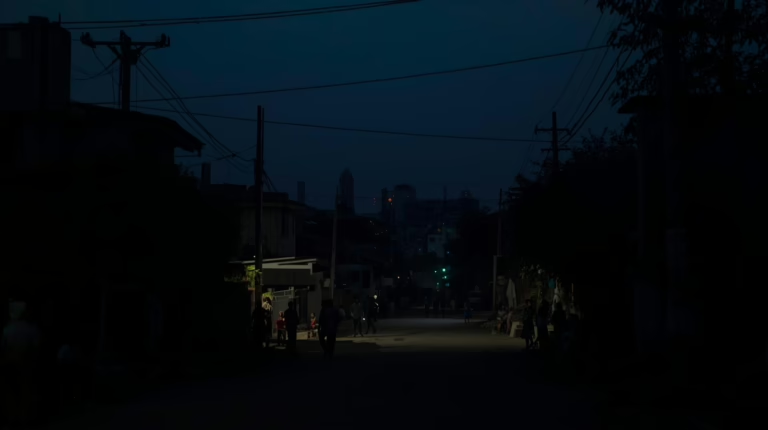Lagos has transcended its reputation as merely Nigeria’s largest city to emerge as the leading fintech hub across Africa. According to a 2025 StartupList Africa report, the metropolis boasts 503 active fintech startups-more than twice the number found in any other African city.
Since 2020, Lagos has witnessed the birth of 256 new fintech ventures, with 78 companies now employing 50 or more staff members. This growth signals a shift from nascent entrepreneurial activity to a more mature, scalable ecosystem. Coupled with a staggering $6.03 billion in startup funding, Lagos commands a level of investment that few cities on the continent can rival.
However, beneath this impressive growth lies a fragile foundation. The city’s infrastructure is struggling to keep pace with the demands of its booming fintech sector.
Frequent power interruptions remain a daily challenge. While many startups strive to maintain operations, reliance on costly generators is widespread.
The national electricity grid is unreliable, and internet connectivity-vital for digital wallets, payment platforms, and financial apps-is inconsistent. In outlying areas, issues like high latency, unstable broadband, and “last-mile” connectivity gaps hinder expansion beyond central business districts.
Industry experts highlight additional hurdles such as ambiguous regulatory frameworks, soaring construction expenses, escalating rental prices, and chronic traffic congestion. Meanwhile, the cost of living for fintech professionals is rising in tandem with the city’s soaring startup valuations.
Rental prices in prime neighborhoods have surged by over 100% in recent years, often outstripping income growth. This squeeze is acutely felt by young engineers and founders.
As one entrepreneur remarked, “You can develop a scalable payment platform, secure funding, and dream globally, but if your team lacks access to stable workspaces and dependable internet, your foundation is unstable.”
Lagos’ Ascendancy in Africa’s Fintech Landscape
The city’s technology sector has evolved rapidly, propelled by a potent combination of capital influx, scaling businesses, and enabling policies.
From 2019 to 2024, Lagos attracted over $6 billion in foreign direct investment targeting startups. The majority of Nigeria’s tech funding flows through Lagos, cementing its status as the premier destination for investors seeking to back African innovation.
Despite a challenging global funding climate, Lagos-based startups secured approximately $158 million in 2024 alone.
A standout success story is Moniepoint, which achieved unicorn status after raising $110 million in a Series C round in late 2024. This milestone pushed its valuation beyond $1 billion, firmly placing Lagos on the global fintech map.
Government initiatives have played a crucial role in this trajectory. The Lagos State Government has proposed a ₦31 billion Innovation Fund (roughly $20-25 million) aimed at supporting startups, financing research, and developing infrastructure such as tech hubs, innovation parks, and venture capital pools.
At the federal level, regulatory bodies have introduced sandbox environments and maintained the longstanding cashless policy, both of which have lowered entry barriers for fintech companies launching digital financial services, mobile wallets, and app-based banking solutions.
This synergy of investment, regulation, and a population eager for improved financial services paints a compelling picture of a thriving fintech ecosystem. Yet, the underlying infrastructure-power, connectivity, and urban logistics-is under significant strain, raising concerns about the sustainability of this growth.
Infrastructure Strains Threaten Growth
Electricity Supply
Lagos’ power infrastructure is woefully insufficient. Official data indicates the city requires approximately 9,000 MW but receives only about 1,000 MW (around 11%) from the national grid. Consequently, over 80% of households and businesses depend on generators or alternative off-grid power sources.
Private power generation costs nearly ₦130 per kWh, compared to ₦50 per kWh from the grid, imposing an estimated ₦5.3 trillion annual financial burden on Lagos residents.
Entrepreneurs report daily blackouts, with a recent survey revealing that tech companies experience over 30 outages monthly, each lasting between 2 to 5 hours. More than half of these firms identify unreliable electricity as a major obstacle, and about one-third estimate that outages reduce their sales by over 20%.
To mitigate these disruptions, startups allocate significant budgets to diesel generators, solar installations, and uninterruptible power supplies, which erode profit margins and slow innovation.
Digital Connectivity
Lagos stands as Nigeria’s digital nerve center. All eight submarine internet cables land in the city, and extensive fiber-optic networks radiate outward. The city accounts for roughly 55% of Nigeria’s data center capacity and serves over half of the country’s internet subscribers.
However, this urban digital advantage contrasts sharply with rural areas, where only about 30% of residents have electricity (compared to 91% in urban centers), and nearly half the population lacks broadband access. While Lagos enjoys fiber ISPs and 4G/5G coverage, smaller towns and villages often rely on slow, unreliable mobile connections.
Even within Lagos, “last-mile” connectivity issues persist, especially outside established tech hubs like Victoria Island and Yaba, hampering business operations.
Office Space and Work Environment
Commercial real estate in Lagos is both limited and expensive. Recent studies rank it as Africa’s priciest city for premium office rentals, averaging around $55 per square meter-surpassing Abuja’s $46 per square meter and other regional capitals.
This high demand stems from the booming finance and tech sectors despite infrastructural shortcomings. The city plans to add approximately 95,000 square meters of Grade-A office space by 2027 through ten major projects, including the new Dangote headquarters in Ikoyi.
Nonetheless, fintech startups concentrated in areas like Yaba, Ikeja, Victoria Island, and Lekki face fierce competition for affordable workspace. Combined with Lagos’ notorious traffic congestion, these factors place additional pressure on founders.
In 2025, Lagos was named the world’s most traffic-congested city, with average one-way commutes lasting 70 minutes. Such lengthy travel times sap productivity and morale, often making remote or hybrid work models essential.
Keeping Skilled Professionals
The strain on infrastructure is prompting many young professionals to relocate. Surveys indicate a growing trend of graduates and tech workers moving to smaller cities where living costs are lower and commutes shorter.
Rental prices in Lagos can be three to four times higher than in cities like Ibadan or Jos (₦200,000+ for a one-bedroom apartment versus ₦50,000-80,000 elsewhere). Commuters often endure 1-2 hour journeys, whereas regional hubs typically offer 20-30 minute commutes.
Advances in remote work technology and improved infrastructure in secondary cities have made such moves viable. Both local and international media report on this talent migration, with developers citing high expenses, pollution, and unreliable power as key motivators. This trend forces startups to increase salaries or risk losing valuable staff.
If Lagos’ infrastructural challenges worsen, the fintech surge risks faltering.
Lagos: Africa’s Fintech Powerhouse or a Brewing Crisis?
Lagos embodies a paradox: it is Africa’s fastest-growing tech metropolis and a magnet for innovation, yet its foundational infrastructure remains outdated and overstretched.
The critical question is: can Lagos maintain its fintech leadership if power supply, internet connectivity, and urban infrastructure fail to improve?
Failure to address these issues could lead to increased operational costs, fragile payment systems, and cautious investors. Microsoft’s 2024 decision to scale back its Lagos operations underscores how even global corporations weigh infrastructural risks carefully.
The path forward demands decisive action:
- Accelerate deployment of microgrids, solar energy solutions, and targeted upgrades to the power network.
- Expand data center capacity and fiber-optic infrastructure while incorporating satellite internet as a backup.
- Promote decentralization by fostering fintech growth in other Nigerian cities to reduce pressure on Lagos.
- Ensure regulatory clarity and simplify Know Your Customer (KYC) processes to encourage innovation.
- Enhance affordability of workspaces, improve commuting options, and upgrade living conditions to retain top talent.























0 Comments